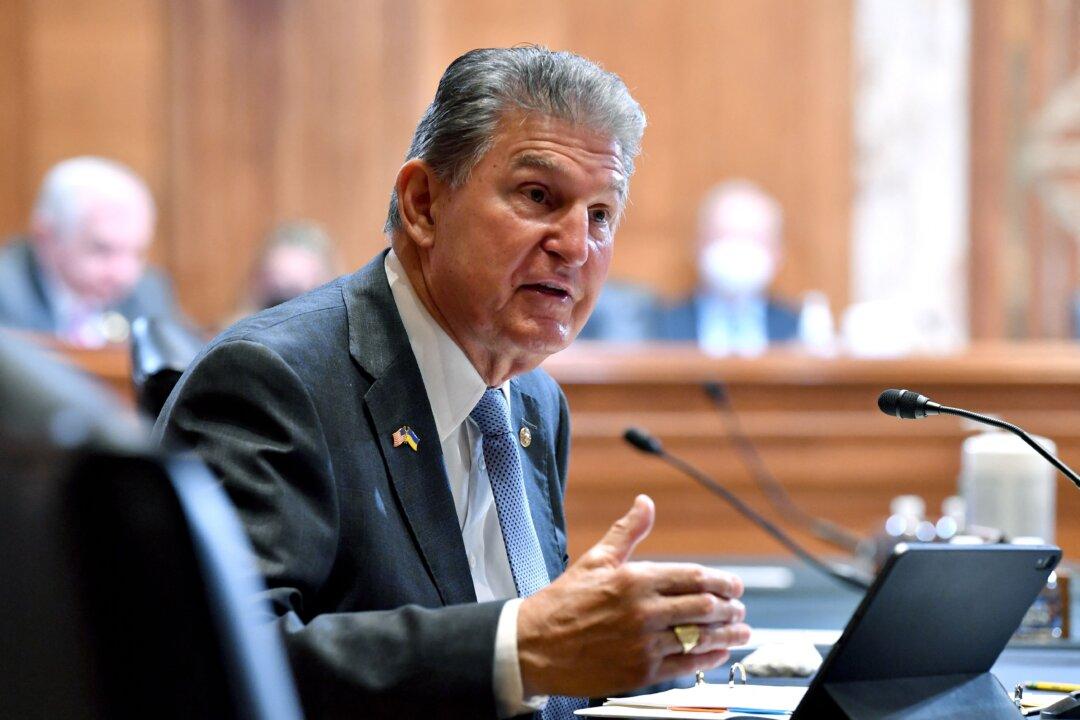The Biden administration’s proposed regulation on accessing electric vehicle (EV) tax credits is facing new challenges, as Energy Committee Chairman Senator Joe Manchin (D-W.V.) seeks to overturn it with a congressional vote.
Mr. Manchin sent a letter to the Government Accountability Office on Monday, requesting legal opinions on whether the Treasury’s proposed regulations are subjected to the Congressional Review Act. That law allows Congress to review and strike down any given rule enacted by federal agencies, but only applies to “final rules.”




